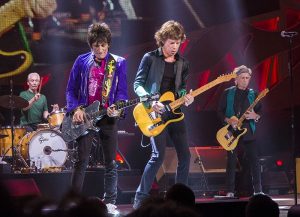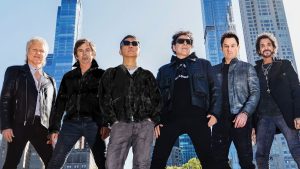Yes: Pioneers of Progressive Rock Through the Ages

In the expansive world of progressive rock, few bands have left as indelible a mark as Yes. Formed in London during 1968, Yes has blended symphonic elements, intricate instrumentation, and philosophical lyrics to create a sound that defies categorization.
Over more than five decades, they’ve released 23 studio albums, achieved multi-platinum success, and influenced countless artists from Radiohead to Dream Theater. Their journey is one of innovation, resilience, and constant evolution, marked by lineup changes that could have derailed lesser groups.
As of 2025, Yes continues to tour, honoring their legacy while introducing their music to new generations.
The Formative Years: From London Clubs to Global Stardom
The group’s origins trace back to the vibrant London music scene of the late 1960s. Vocalist Jon Anderson, inspired by harmony-driven acts like The Beatles and Simon & Garfunkel, met bassist Chris Squire at La Chasse Club in 1968. Squire, fresh from the psychedelic band The Syn, shared Anderson’s vision for a group that fused rock with classical and jazz influences. They soon recruited guitarist Peter Banks, keyboardist Tony Kaye, and drummer Bill Bruford to round out the lineup. The band’s name, “Yes,” was chosen during an early rehearsal for its positive, punchy connotation.
Their debut album, Yes (1969), featured a mix of originals and covers, showcasing Anderson’s soaring falsetto and the band’s harmonic prowess. It was followed by Time and a Word (1970), which incorporated orchestral arrangements but faced criticism for overproduction.
Tensions arose, leading to Banks’s departure and he was replaced by the technically adept Steve Howe from Tomorrow. This change proved pivotal for The Yes Album (1971), which climbed to No. 4 in the UK and No. 40 in the US, driven by tracks like “Yours Is No Disgrace” and “Starship Trooper.” The album’s success on FM radio established Yes as true prog rock contenders.
The early 1970s marked their golden era. With Rick Wakeman replacing Kaye on keyboards, Fragile (1972) introduced iconic pieces like “Roundabout” (a Top 20 US hit) and “Long Distance Runaround.” The album’s artwork by Roger Dean became synonymous with the band’s ethereal aesthetic.
Close to the Edge (1972), a conceptual masterpiece with its 18-minute title suite, peaked at No. 3 in both the UK and the US, solidifying their status. Extensive touring, including headlining arenas, followed, but once again, internal strains began to show.
Tales from Topographic Oceans (1973), a double album inspired by Eastern philosophy, divided fans and critics with its ambitious scope. Wakeman, dissatisfied with the direction, left for a solo career, replaced briefly by Patrick Moraz for Relayer (1974).
Despite commercial success with Tales from Topographic Oceans hitting No. 1 in the UK, the band took a hiatus in 1975, during which members pursued various solo projects.
Turbulent Transitions: Lineup Changes and Reinventions
Yes’s history is a tapestry of departures and returns, often driven by creative differences, health issues, or solo ambitions. After the hiatus, Alan White (formerly of Plastic Ono Band) permanently replaced Bruford, who had left for King Crimson after Close to the Edge.
Wakeman rejoined for Going for the One (1977) and Tormato (1978), yielding hits like “Wonderous Stories.” However, by 1979, Anderson and Wakeman exited amid disagreements over musical direction, leading to a brief dissolution.
Squire and White reformed Yes with Trevor Horn and Geoff Downes from The Buggles, releasing Drama (1980). The album’s harder edge alienated some fans, and Horn’s vocal style didn’t resonate, prompting his departure.
Anderson returned in 1982, joined by guitarist Trevor Rabin, whose pop sensibilities shaped 90125 (1983). This album, produced by Horn, became their biggest seller (triple platinum in the US), thanks to the MTV-fueled No. 1 hit “Owner of a Lonely Heart.” Big Generator (1987) followed suit, but Rabin clashed with Anderson, leading to his exit.
The late 1980s and 1990s were chaotic. Anderson, Bruford, Wakeman, and Howe formed a splinter group (ABWH), releasing an album in 1989. Legal battles ensued over the “Yes” name, culminating in the hybrid Union (1991), which featured an eight-member lineup for a tour.
Wakeman left again, citing dissatisfaction. The Rabin-era reformed for Talk (1994), but by 1995, Rabin departed to pursue film scoring. Billy Sherwood joined on bass and guitar, and Wakeman returned for Keys to Ascension (1996-1997).
The 2000s saw more flux: Igor Khoroshev briefly on keys, then Downes permanently from 2011. Anderson left in 2008 due to respiratory issues, replaced by Benoît David (2008-2012) and then Jon Davison.
Squire’s death from leukemia in 2015 was a profound loss since he was the only continuous member. White passed in 2022 after health struggles.
Today, the lineup features Howe (guitar), Downes (keys), Davison (vocals), Sherwood (bass), and Jay Schellen (drums, since 2023). This configuration honors the classics while adding fresh energy.
Yes in 2025: Touring and Legacy Preservation
Today, Yes is gearing up for “The Fragile Tour 2025, The Album Series,” an “evening with Yes” trek focusing on their 1971 masterpiece Fragile performed in its entirety, alongside other classics.
Announced on June 10, 2025, the tour kicks off October 1 in Wallingford, Connecticut, at the Toyota Oakdale Theatre, and wraps up on November 16 in Reno, Nevada. Highlights include stops in Atlantic City (October 4, Hard Rock Live), Washington, D.C., Atlanta, and Indianapolis.
The shows feature a video wall with AI-enhanced Roger Dean artwork, blending nostalgia with modern tech. Tickets, including VIP packages, are available via the official site yesworld.com, with strong sales being reported.
This tour follows their 2023 album “Mirror to the Sky,” which received positive reviews for capturing the band’s essence.
Meanwhile, founding vocalist Jon Anderson is on his own “Yes Epics, Classics and More” tour in 2025, starting April 1 in Tucson, Arizona, and ending May in New Jersey, performing Yes material with his Band Geeks.
The split highlights ongoing dynamics, but both camps maintain respect for the legacy.
Yes’s influence endures through reissues, documentaries, and tributes. Their 2017 Rock Hall induction celebrated their innovation, and with over 13 million albums sold, they remain prog icons. As Howe notes, the band’s art and music continue to evolve, ensuring Yes’s place in rock history.




